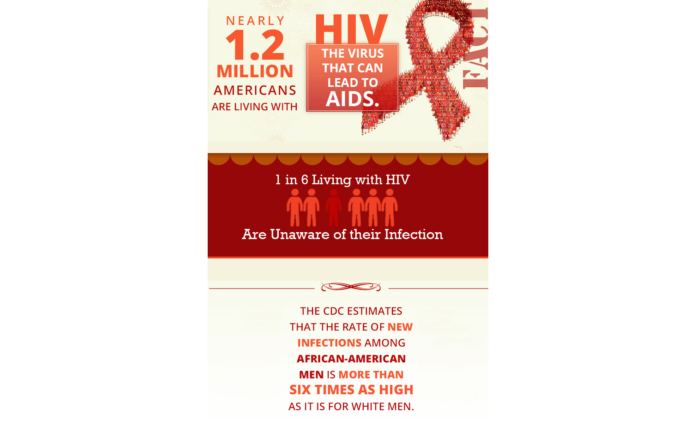On Sunday, Dec. 1, the world took time to remember the devastating affects of AIDS. The Student Union for Multicultural Affairs (SUMA) and the President’s Commission on Gender Identity and Sexual Orientation hosted their fourth annual Red Ribbon Monologues event to commemorate World Aids Day on Monday night in the Student Center Ballroom.
World Aids Day has a history dating back more than twenty years. Two public officers, James Bunn and Thomas Netter decided that there should be a global day to raise awareness of AIDS. When Bunn and Netter proposed this idea to the Global Program director, it was granted. Ever since Dec. 1, 1988, World Aids Day has been a very important day used to raise awareness about the dangers of HIV and AIDS.
The event hosted a variety of monologues and poetry. To set the mood of more of a poetry club, several candles were lit around the room and the lights were dimmed.
Junior biology major, Ashley Craig, 21, performed an original poem titled Silent Killah. Craig addressed how AIDS does not discriminate against anybody.
“AIDS is sort of like a game. Tag! You’re it. It only takes two seconds to ruin your whole life. AIDS doesn’t discriminate according to race or gender. It can happen if you don’t take the right precautions. Wrap it up,” she said.
Craig expressed that most of the time, most people don’t even know they have AIDS, which creates a chain of people not knowing that they are infected by AIDS. It kills millions each year.
Videos were also shown to emphasis the dangers of AIDS and HIV. Statistics in the video show that 33.4 million people in the world live with AIDS. Among those 33.4 million, one million are in the United States. Statistics also show that one in six people living with HIV are unaware of their infection.
After each monologue and poem was finished, speaker Clarisse Jordan of the Pittsburgh AIDS Task Force (PATF) gave a speech on her struggles living with AIDS.
“Yes, in high school, everything was nice. I had a faithful boyfriend that took me places and didn’t hide anything from me, or so I thought. We told each other everything, but what he did not tell me what they he was infected with HIV,” she said.
Jordan admitted that she didn’t want to get tested because she thought that she couldn’t have HIV.
“All I remember saying was that I thought that AIDS was a gay white man’s disease. I wasn’t gay or white, so I knew I didn’t have it,” she said.
Jordan explained that a month and a half later, she received her test results back and her doctor told her blatantly that she was going to die of AIDS by the time she was 24, but what she didn’t realize was that having AIDS came with a lot of other side effects.
“In 1997, I ended up spending 10 days in the hospital. Just from having one infection, I developed chronic bronchitis, hypertension of the lungs, diabetes, and had a total of ten mini strokes. I was completely bed-ridden.”
Toward the end of her speech, Jordan explained how HIV never had a target.
“HIV doesn’t care about you being black or white. It doesn’t care if you have money, or if you’re poor. You can have a little one-room shack, or you can live in a mansion,” she said. “Every time you have unprotected sex, you might as well grab a gun with one bullet and put it to your head because you are playing Russian roulette with your life.”
Jordan expressed that she came to tell her story because she doesn’t want anyone to end up with the life she was given. She wasn’t able to go to college because of the fear of being judged for having AIDS.
“Next time things are getting hot and heavy, I want you to close your eyes and picture Ms. Clarisse. After you do that, I want you to get up, put on your clothes, and run.”







